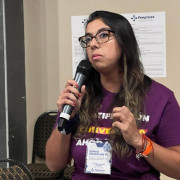Speakers
Speakers

Dave Prentis was elected president of Public Services International in 2010. At that time, he was general secretary of UNISON, the United Kingdom's largest trade union. Before that, as deputy general secretary of the newly founded UNISON, he directed the union's national negotiating team, oversaw its policymaking functions and led a strategic review that delivered vital reforms to bring union services closer to the members. He had joined the National and Local Government Officers' Association (NALGO), one of UNISON's predecessors, in 1975 after studying history, economics, and industrial relations. Dave served as president of the Trades Union Congress and a director of the Bank of England and received a peerage in 2022.
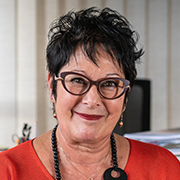
Rosa Pavanelli is General Secretary of the global union federation Public Services International (PSI). She was elected at PSI’s World Congress in November 2012 and was re-elected for a second mandate in November 2017. In March 2016, Rosa was nominated as Commissioner on the UN Secretary-General's High-Level Commission on Health Employment and Economic Growth (UN ComHEEG), representing the trade union movement, health workers and public services. Rosa is also a member of the United Nations High-level Experts and Leaders Panel on Water and Disasters and of the Cornell University International Labour Relations Worker Institute Advisory Council. She also collaborates closely with the Independent Commission for the Reform of International Corporate Taxation (ICRICT).
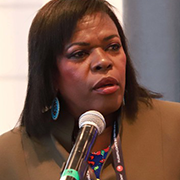
Agripina Hurtado is chair of PSI's Inter-American Committee to Combat Racism, Xenophobia and All Related Forms of Discrimination, representing USE (Unión Sindical de EMCALI). With more than 20 years as a trade unionist in Colombia, she is co-founder of the Afro-Colombian Labour Council (CLAF), a member of the National Afro-Colombian Peace Council, CONPA, and an executive member of the Global African and Afro-descendant Workers' Institute GWAI.
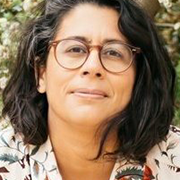
Anabella Rosemberg is a global expert on the social justice dimension of environmental and climate policies. She is a senior advisor on Just Transition for the Climate Action Network (CAN) and the UN Research Institute for Social Development (UNRISD). She was born in the Patagonia region of Argentina and currently lives in Paris, France. Anabella has worked as international programme director (IPD) at Greenpeace International (2018-2023), and before that, at the International Trade Union Confederation (ITUC), where she worked globally with unions and other allies in many countries, particularly in the global south, on a range of climate change campaigns and issues. Anabella is also the chair of the board of the Women's Environment and Development Organisation (WEDO).

Andrew Cumbers is a professor of political economy at the Adam Smith Business School, University of Glasgow. He received a BA from the University of Wales)and a PhD from the University of Durham. Before moving to Glasgow, Andrew worked as a researcher and lecturer in labour and economic geography at the universities of Durham, Middlesex and Aberdeen. He was formerly professor of geographical political economy at the University of Glasgow.
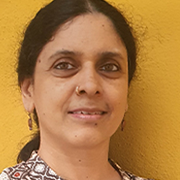
Anita Gurumurthy is a founding member and executive director of IT for Change, where she leads research and advocacy on data and AI governance, platform regulation, and feminist frameworks on digital justice. Anita contributes regularly to academic and media spaces. She serves as an expert on various bodies, including the United Nations Secretary-General’s 10-Member Group on Technology Facilitation and the Council of the Platform Cooperativism Consortium at The New School in New York. Anita has been on the Paris Peace Forum’s working group on algorithmic governance and is also a board member of global justice organisations such as the ETC Group and University centres such as the Minderoo Tech & Policy Lab at the University of Western Australia and the International Development and Social Change programme of Loughborough University.

Celeste Drake is the new Deputy Director-General of the International Labour Organization (ILO). She served as an economic advisor to US President Joe Biden and was a legislative director for Democratic Party members of Congress. Previously, she was responsible for government affairs for the Directors' Guild of America, the trade union representing film and television directors. She was also a trade policy analyst with the American Federation of Labor-Congress of Industrial Organisations (AFL-CIO).
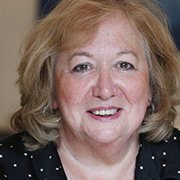
Christina McAnea is the general secretary of UNISON, the United Kingdom's largest trade union, elected in 2021. She has worked at Unison since its founding in 1993. She previously worked at the National and Local Government Officers' Association (NALGO), initially as a women's officer, before NALGO merged with other trade unions to form UNISON. She became one of five assistant general secretaries of UNISON in May 2018. She grew up in Red Clydeside, Glasgow's militant working-class district. She worked in local government and the national health service and attended the University of Strathclyde.
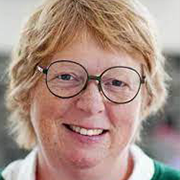
Christina J. Colclough is a widely-regarded thought leader on the futures of work(ers) and the politics of digital technology. She is a strong advocate for the workers' voice and quality public services, and she founded the Why Not Lab to reshape the current digitalisation trajectory so that human rights, freedoms and autonomy are respected and protected. Her background is in labour market research and the global labour movement, where she led efforts on the future of work policies, advocacy and strategies for several years. She authored the union movement's first principles on Workers' Data Rights and the Ethics of AI. She is a fellow of the UK Royal Society of Arts and an advisory board member of the Carnegie Council's AI and Equality Initiative. She is also a member of the UNESCO #Women4EthicalAI Platform.
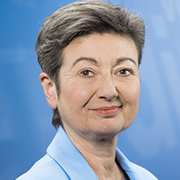
From the beginning as a member of the ver.di Federal Executive Board, she was responsible for the Department of Health, Social Services, Welfare and Churches as well as Health Policy. In 2019, she became head of the department of education, science and research, education policy and the youth group; since 2022, the two departments have been merged.

Clare is Unite the Union’s National Officer for local authorities, representing local government workers across the UK, including in local and regional government, school support staff and police staff. She has been a full time Unite official for 5 years, organising numerous strikes and insourcing campaigns, including with low-paid civil aviation and local authority workers and she now leads Unite’s sector strategy for insourcing local government contracts. She has been a Unite member for 10 years and was previously a young members’ activist and support worker within her own local community.
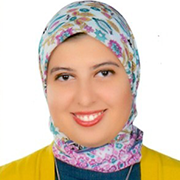
Dahlia Yasser Fetiha works as a cataloguing manuscripts’ specialist at the Manuscripts Center at the Bibliotheca Alexandrina and is the General Secretary of the Bibliotheca Alexandrina Solidarity Staff Union.
She is the PSI Young Worker Substitute representative for the MENA Region. As a unionist, she is mainly concerned with youth and digitization. She participated in several trainings on these subjects, and she is currently integrating her experience in future training for Egyptian affiliates.

Daria Cibrario is PSI's policy officer in charge of the Local and Regional Government workers. Prior to this role, Daria has served as elected sectoral secretary for the Food and Drink Industry at the European Federation of Food, Tourism and Agriculture Trade Unions (EFFAT) in Brussels, and as international officer for the food and drink sector at the International Union of Food Workers (IUF) in Geneva. She has held policy and research positions at the International Labour Organization (ILO) and its International Training Centre in Turin. Daria holds a MSc in International Political Economy from the London School of Economics.

David Boys is PSI's deputy general secretary and coordinates work on water and energy utilities, privatisation, and the climate crisis. David joined PSI in 1998 after 11 years with SEIU North America. In 2006, UN Secretary-General Kofi Annan named him to his Advisory Board on Water and Sanitation, where he successfully blocked an attempt to make public-private partnerships the UN policy for the sector, proposing instead the creation of public-public partnerships, currently housed in UN Habitat.
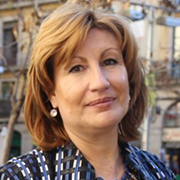
Emilia Saiz Carrancedo is the secretary general of United Cities and Local Government (UCLG). She has worked with the international movement of local and regional governments in different capacities since 1998, leading programmes and initiatives on institutional capacity building, the participation of women in local decision-making and decentralised cooperation. She studied international law and earned a master’s degree in local governance in the information society.

Federico Davila is co-president PSI Interamerica and a PSI vice-resident. He is a co-founder of the Frente de Gremios Estatales de Latinoamérica y el Caribe and director of the Master's Degree programme in Public Administration at the Universidad del Salvador (USAL, Argentina). He has a degree in International Trade (UNLu, Argentina) and is a specialist in international relations (UNINTER, Paraguay).
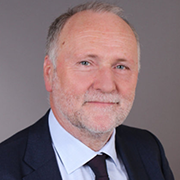
Frank Hoffer is the non-executive director of the Global Labour University Online Academy. He also serves on the board of the Global Labour Column. As a board member of Salidarnast e.V. he supports the Independent Belarusian trade unions. Previously he worked at the International Labor Organization as an expert in social dialogue, wage policies and labour standards.
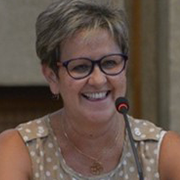
Françoise Geng is a hospital administrator and a member of the national executive of the Health and Social Action Federation of France's CGT Santé, the Confédération générale du travail - fédération de la santé et de l’action sociale. She is a former president of the European Economic and Social Committee's Section for Employment, Social Affairs and Citizenship and a vice-president of the European Federation of Public Service Unions (EPSU).

Fred Hahn is a general vice-president of the Canadian Union of Public Employees (CUPE), Canada's largest trade union, president of the union's Ontario provincial section, and vice-president of the Ontario Federation of Labour. He joined CUPE in 1991 as a social worker supporting persons with developmental and intellectual disabilities. He advocates for quality public services and, as Ontario's first openly LGBT+ labour leader, working to build an inclusive trade union movement.

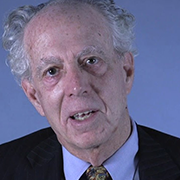
Harris Gleckman is a senior fellow at the Center on Governance and Sustainability at the University of Massachusetts in Boston, an associate of the Transnational Institute, an executive board member of the Foundation for Global Governance and Sustainability, and a director of Benchmark Environmental Consulting. He has a PhD in Sociology from Brandeis University. Dr. Gleckman is also the author of Multistakeholder Governance and Democracy : A Global Challenge, Routledge, 2018 and a series of papers on TNCs and COVID published by the Transnational Institute He is a fierce critic of the World Economic Forum and the corporate capture of multilateral institutions. He currently advising the G77 chapters on multistakeholderism and the forthcoming Summit of the Future.
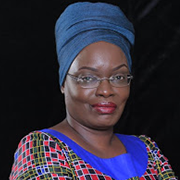
Irene Ovonji-Odida is a commissioner on the Independent Commission for Reform of Corporate Income Tax (ICRICT) and a member of the South Center Tax Steering Initiative, Tax Justice Network Board and Pan African Lawyers Union task force on Illicit Financial Flows. She is a Ugandan lawyer, politician, and campaigner for women's rights and social justice for three decades. She has worked for various NGOs, including ActionAid international as its international board chair. As an elected member of the East African Legislative Assembly from 2001 to 2006 she championed effective representation by legislators, coordinating engagement of African MPs with non-state actors including civil society and trade negotiators during WTO negotiations in 2003 and 2005, to strengthen support for interests of developing countries and advocate for fair WTO processes.
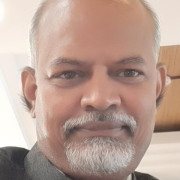
Jammu Anand has been in public life since his student days when he was very active in the students' movement. He was a prominent All India Students Federation leader from 1982 to 1990. He was involved with the people's science movement for a decade. He finally became part of the trade union movement in 2002 in the LRG sector with the Nagpur Municipal Corporation Employees Union. In the last twenty years, he has organised sanitary and contract workers in water and solid waste management. Since then, he has successfully unionised the contracted health and community health workers. He led many successful actions of workers and won many battles. He is a full-time trade unionist.
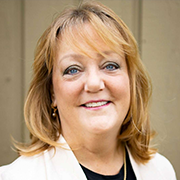
Jan Hochadel is a vice-president of the American Federation of Teachers (AFT) and president of AFT Connecticut. She has held various union leadership positions, including executive vice-president of the state AFL-CIO labour federation. She is co-chair of PSI's Interamerica Regional Executive Committee and a PSI Executive Board member. In addition to her union leadership roles, Hochadel has a deep commitment to education and public service. The governor appointed her to the state's Reopen Connecticut panel to address the impact of the COVID-19 pandemic. She represented teachers and school support staff on the public education subcommittee charged with developing plans to resume in-person learning safely.
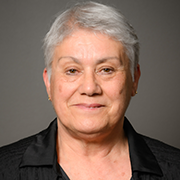
Lesley Dixon is a mental health worker specifically for Māori people. She has been a member of PSA for 30 years and a delegate for about 12 years. She now is a Māori enterprise delegate, a voice for Māori people within the PSA structure. She is a Tuakana in the Tuakana-teina role and is on the Executive Board for PSA. She is also the first Māori Vice President of the PSA.

Lorenzo Frangi is professor of employment relations at the École des sciences de la gestion (ESG UQAM) in Montreal, Canada. His research examines how new employment relations settings and social dynamics affect union actions and working conditions, mainly through an international comparative perspective. He analyses different data sources to highlight resources that foster union actions, opportunities to improve labour conditions, and industrial relations strategies to promote practical change. He has contributed to the British Journal of Industrial Relations, Work Employment and Society, European Journal of Industrial Relations, and Economic and Industrial Democracy, among other publications.
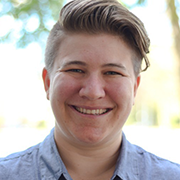
Maddy Northam is the Australian Capital Territory Regional Secretary for the Community and Public Sector Union (CPSU) which represents Commonwealth and Territory public servants. In addition to this, Maddy is the President of UnionsACT which represents over 30,000 union members across Canberra. Maddy is a PSI Executive Board Youth Titular and has used this role to push for greater inclusion of young workers, and the issues that concern them, in global union federations and the ITUC. Maddy lives in Canberra with her wife and twin babies.

Marcelo Di Stefano is a lawyer, Master and Doctor in Labour Law. He is a professor at the University of Buenos Aires, and author of numerous publications on the subject. As a trade union leader, he currently holds the Executive Secretariat of the Confederation of University Workers of the Americas (CONTUA), is a member of the Executive Council of the Trade Union Confederation of the Americas (TUCA), and on behalf of the Argentine Federation of National University Workers (FATUN) is co-chair of the Global Network of Education Support Workers of Public Services International.

Marianne Bilonda Kazadi is a nurse and member of Solidarité syndicale des Infirmiers du Congo (SOLSICO) since 2012. In 2017, she was elected youth representative for the francophone Africa sub-region.

Dr. Mercy Nabwire is the national treasurer of the Kenya Medical Practitioners, Pharmacists and Dentists Union (KMPDU), the premier doctors' union in Kenya that aims to unite, represent and protect doctors of all cadres and qualifications. She is also a medical officer at Eldoret's Moi Teaching and Referral Hospital. Dr. Nabwire is a dedicated and influential leader in the health sector, advocating for the rights and welfare of doctors and other health workers in Kenya, especially during the COVID-19 pandemic. She has been involved in several negotiations with the government and other stakeholders to address the issues of salary arrears, promotions, transfers, working conditions, personal protective equipment, insurance, and compensation. Dr. Nabwire is passionate about improving the quality and accessibility of health care in Kenya and champions the public health care system to focus on providing health services as a right to all Kenyans.
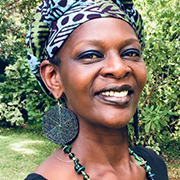
Nancy Kachingwe is a gender and public policy advisor and a cofounder of South Feminist Futures, and is based in Harare, Zimbabwe. She has over two decades of experience in the international and regional NGO sector, working on a range of development policy issues including trade and globalisation, regional integration, land rights, women’s empowerment and climate change—with a particular focus on influencing policy and strengthening civil society from a feminist political economy perspective.
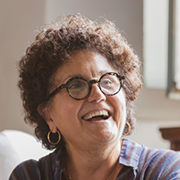
Nicoletta Dentico is an Italian journalist focussing on international development and global public health. After coordinating the Campaign to Ban Landmines in Italy, she directed Médecins Sans Frontières (MSF) and its Access to Essential Medicines campaign. She has worked as a policy and advocacy manager for the Drugs for Neglected Diseases Initiative (DNDi) and with the World Health Organization (WHO) on public health, innovation, and intellectual property issues. She currently leads the global health justice programme at the Society for International Development (SID). She co-chairs the Geneva Global Health Hub (G2H2), an independent platform of civil society organisations working on global health justice. She has written extensively on health rights and development. Her most recent books are “Rich and Generous? The Dark Weft of Philanthrocapitalism” (2020) and “Health Geopolitics: COVID-19, WHO and the Pandemic Challenges” (2021).
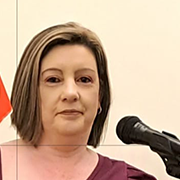
Rebeca Céspedes Alvarado has worked for 20 years in the Municipality of Goicoechea in the Province of San José, Costa Rica. She is the gender secretary of the National Association of Public Employees (ANEP) of Costa Rica and its representative in PSI. On a global level, Rebeca holds the position of human rights secretary of the Executive Board of the Confederation of Municipal Workers of the Americas (CONTRAM-PSI), and is a legal advisor of the Executive Board of the Confederation of Water, Sanitation and Energy Workers of Latin America (CONTAGUAS). She is a member of PSI's Just Transition, Trade Unions and Citizenship Project Steering Committee Team and the Interamericas Regional Steering Committee. She is also deputy coordinator of PSI's Mexico, Central America and Dominican Republic subregional Women's Committee. From an early age, Rebeca has participated in trade union, social, environmental, ecological, and political movements, always searching for the common good.
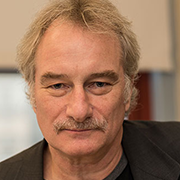
Sean Sweeney is the director of the International Programme on Labor, Climate & Environment at the School of Labor and Urban Studies, City University of New York. He also coordinates Trade Unions for Energy Democracy (TUED), a global network of 92 unions from 26 countries. TUED advocates for a “public pathway” approach to energy transition, climate protection, and combating energy poverty. TUED works with trade unions and allies to both defend and extend public ownership of energy.
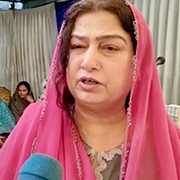
Shamim Ara was born in Sanghar, Sindh province, Pakistan. She completed her postgraduate in Sociology from Sindh University. She joined the All Pakistan Lady Health Workers Association in 2012 as President of the Sanghar district, playing a significant role in the country-wide movement to regularise the employment of 125,000 women health workers. She helped organise a big sit-in and demonstrations in Islamabad, Karachi and Kamu Shaheed Chowk. After the devolution of Pakistan's Health Ministry to provincial governments, she helped to establish the All Sindh Lady Health Workers and Employees Union (ASLHWEU) in 2013 and was elected General Secretary. ASLHWEU affiliated to PSI in 2018. She fought the government's refusal to register the union until it relented. ASLHWEU is the first registered lady health workers union in Pakistan. In 2022, when the provincial government decided to end the health risk allowance for health workers, she led ASLHWEU and other organisations to demand its restoration. The government broke up demonstrations with batons and water cannons and arrested union leaders. She believes that the empowerment of women, a democratic union culture, unity and continuous struggle will achieve workers' rights.
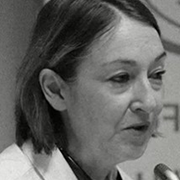
Sue Longley is the general secretary of the International Union of Food, Agricultural, Hotel, Restaurant, Catering, Tobacco and Allied Workers’ Associations (IUF), the global union federation representing food, farm and hotel workers. Elected in 2017, she is the first woman to hold that post and previously served as IUF assistant general secretary and the IUF’s international coordinator for agriculture and plantations. Sue earlier worked for the IUF-affiliated Transport and General Workers Union in the United Kingdom, now Unite the Union, where she held several posts, including editor of the union’s journal, the Landworker.

SungHee is the Director of International Affairs at the Korean Public Service and Transport Workers' Union (KPTU) since August 2020. Before, she worked at the Korean Government Employees' Union (KGEU) and the GM Korea branch of the Korean Metal Workers' Union (KMWU). Her areas of expertise and interest include strengthening quality public services, labour rights, women's human rights, and past human rights violations through state violence.

Thierry Apothéloz is a state councillor for the Canton of Geneva, responsible for the Department of Social Cohesion. He was first elected aged 30 to the Grand Council as a member of the Socialist Party and, two years later, elected mayor of the Vernier commune. He pioneered the canton's neighbourhood contracts, the first of which created a collective utility project. Since then, more than one hundred citizen-led projects have been achieved. He was trained as a social worker and has worked in public services with children and youth.
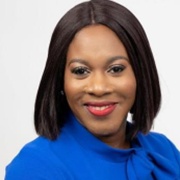
Tifonie Powell-Williams is the general secretary of the Jamaica Civil Service Association (JCSA), one of the largest trade unions in Jamaica, representing a diverse membership from various sectors. She has made significant contributions to the global conversation on climate action, having presented her insights at fora such as the ITUC World Congress in Melbourne, the Climate Summit held in Jamaica, and the Caribbean Trade Union Forum on the fight for Climate Justice in collaboration with the Cipriani College of Labour and Co-operative Studies, Trinidad and Tobago. She co-chairs the Emergencies, Disasters, and the Climate Crisis Steering Group of Public Services International. Her commitment to addressing climate issues is professional and deeply personal, reflecting her dedication to safeguarding the planet for future generations.

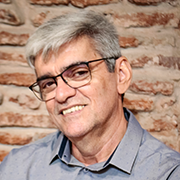
Rafael Freire Neto is a sociologist and has been General Secretary of the Trade Union Confederation of the Americas (TUCA) since 2019. His participation in TUCA began with its founding in 2008, when he served as Secretary for Political Economy and Sustainable Development, until becoming General Secretary.
Rafael has been a trade union leader with CUT Brazil, beginning in 1986 with CUT Rio Grade do Norte and with the National Education Workers’ Union of Brazil (CNTE), form 1994 to 2006, where we worked as National Secretary for Organising and International Relations. He also occupied the role of General Secretary of the Coordinating Committee of Trade Union Centres of the Southern Cone (CCSCS) from 2003 to 2005.
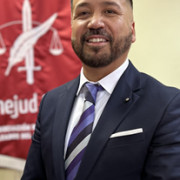
Lawyer and engineer in Administration. He is a judicial employee of Chile, national leader and head of the Science and Technology Department of the National Association of Employees of the Judiciary of this country. His union has been in existence for 55 years and is the only national union that brings together the workers of the employees.
His experience and knowledge in the field of digitization have led him to be part of the PSI Southern Cone Group, where he has shared his knowledge on digitization and new forms of employment in the judicial sector and the impact on public services.
